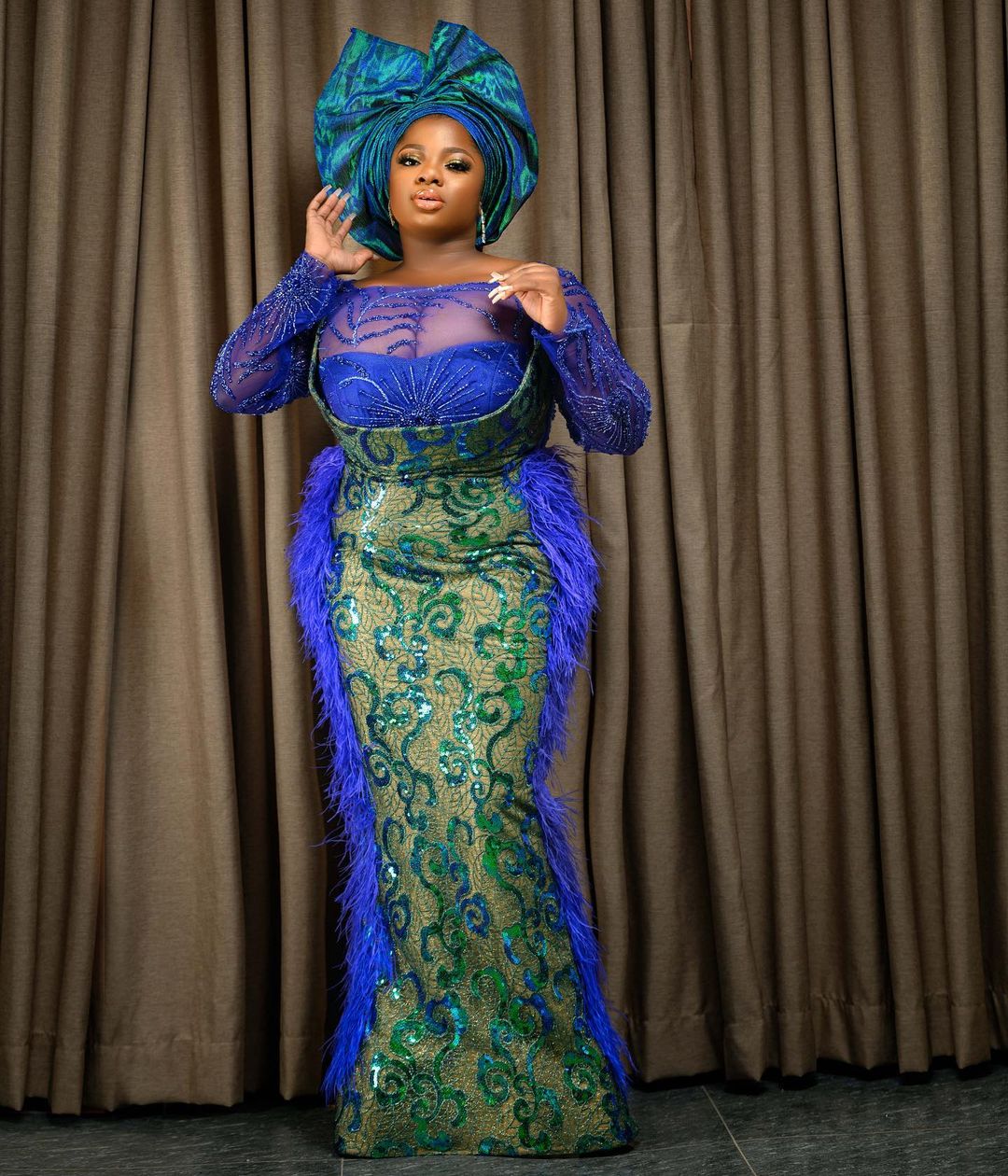Nigerian gowns are an exquisite representation of the rich cultural heritage and diverse fashion landscape of Nigeria. From traditional ceremonies to modern parties, these gowns create an impressive visual narrative that captivates both wearers and spectators alike. Made from colorful fabrics and adorned with intricate embroidery, Nigerian gowns offer a fusion of beauty, elegance, and cultural significance that stands out in the global fashion arena.
The versatility of Nigerian gowns is one of their most alluring features. They can be styled for various occasions, making them a staple in every Nigerian woman's wardrobe. Whether it is an elaborate wedding, a festive celebration, or a casual outing, these gowns come in various designs, lengths, and styles that cater to different tastes and preferences. The use of vibrant colors and patterns further enhances their appeal, making them a favorite among fashion enthusiasts.
In recent years, Nigerian gowns have gained international recognition, with many designers showcasing their work on global platforms. This popularity has resulted in a growing interest in the intricate craftsmanship and unique designs that define Nigerian fashion. As we delve deeper into the world of Nigerian gowns, we will explore the different styles, their cultural significance, and how they have evolved over the years.
What Are the Different Styles of Nigerian Gowns?
Nigerian gowns come in a multitude of styles, each reflecting the rich tapestry of Nigerian culture. Some popular styles include:
- **Aso Ebi Gowns**: Typically worn at weddings and special celebrations, these gowns are made from matching fabric and are often adorned with beautiful embellishments.
- **Kaftan Gowns**: Known for their loose fit and flowing silhouette, kaftan gowns are perfect for casual gatherings or beach outings.
- **Mermaid Gowns**: These figure-hugging gowns flare out at the bottom, making them a favorite for formal occasions.
- **Off-Shoulder Gowns**: A modern twist to traditional designs, off-shoulder gowns have become trendy for various events.
Why Are Nigerian Gowns Significant in Cultural Celebrations?
Nigerian gowns play a crucial role in cultural celebrations, symbolizing unity, heritage, and pride. During events like weddings and festivals, the choice of gown can represent the wearer's family background or regional identity. For instance, different ethnic groups in Nigeria have unique styles and designs that reflect their traditions and values.
How Do Nigerian Gowns Reflect the Country's Diversity?
The diversity of Nigeria is beautifully showcased through its gowns. Each ethnic group, including the Yoruba, Igbo, and Hausa, has distinct styles, fabrics, and embroidery techniques. This variety not only highlights the creativity of Nigerian designers but also promotes cultural exchange and appreciation among different communities.
What Fabrics Are Commonly Used in Nigerian Gowns?
Nigerian gowns are made from a variety of fabrics, each contributing to the overall aesthetic and comfort of the garment. Some commonly used fabrics include:
- **Ankara**: A colorful and vibrant cotton fabric that is a staple in Nigerian fashion.
- **Lace**: Often used for embellishments and overlays, lace adds a touch of elegance to gowns.
- **Satin**: Known for its smooth texture and sheen, satin is favored for formal gowns.
- **Kente**: A traditional handwoven fabric that is rich in symbolism and color.
Who Are the Leading Designers of Nigerian Gowns?
The Nigerian fashion industry has produced numerous talented designers known for their innovative approaches to gown design. Some of the leading names include:
- **Deola Sagoe**: Renowned for her contemporary take on traditional designs.
- **Tiffany Amber**: Known for her use of rich colors and luxurious fabrics.
- **Zizi Cardow**: A pioneer in the Nigerian fashion scene, celebrated for her unique and bold designs.
What Are Some Tips for Choosing the Perfect Nigerian Gown?
Choosing the right Nigerian gown can elevate your look for any occasion. Here are some tips to keep in mind:
- **Consider the Occasion**: Choose a gown style that is appropriate for the event you are attending.
- **Know Your Body Type**: Select a gown that flatters your figure and enhances your best features.
- **Fabric Matters**: Opt for fabrics that are comfortable and suitable for the weather conditions.
- **Personal Style**: Ensure that the gown reflects your personal style and taste.
What Is the Future of Nigerian Gowns in Global Fashion?
The future of Nigerian gowns looks promising as they continue to gain international acclaim. With the rise of social media and global fashion platforms, Nigerian designers have the opportunity to showcase their creativity and craftsmanship to a wider audience. This exposure not only helps promote Nigerian culture but also encourages collaboration with international designers, paving the way for innovative fashion trends.
Who Are Some Celebrities Who Love Nigerian Gowns?
Several celebrities have embraced Nigerian gowns, showcasing their beauty on various platforms. Some notable figures include:
- **Genevieve Nnaji**: A prominent Nollywood actress known for her graceful style.
- **Omotola Jalade Ekeinde**: A celebrated actress and philanthropist, often seen in stunning Nigerian gowns.
- **Tiwa Savage**: A popular musician who frequently showcases her love for Nigerian fashion.
What Makes Nigerian Gowns a Must-Have Fashion Item?
Nigerian gowns are not just garments; they are a celebration of culture, creativity, and individuality. Their unique designs, vibrant colors, and cultural significance make them a must-have for anyone looking to make a statement. Whether for a special occasion or everyday wear, Nigerian gowns offer a timeless elegance that transcends trends.
In conclusion, the world of Nigerian gowns is a vibrant tapestry of tradition, creativity, and cultural expression. As they continue to evolve and gain recognition on the global stage, Nigerian gowns remain an essential part of Nigeria's rich fashion heritage, captivating hearts and inspiring fashion lovers around the world.
Dreadlock Hairstyle: A Cultural Journey Through Locks
Dreadlocks Undercut: The Bold And Creative Hair Trend
Unveiling The Life And Legacy Of Graig Enriques


